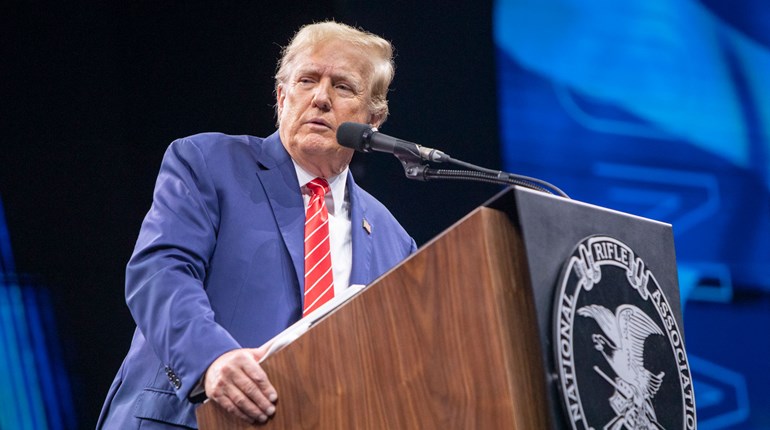
Corporations might have thought they were immune to criticism after they sided with outspoken liberals in their decisions to denounce the NRA and the firearm industry, but if shareholder meetings are any indication, they are being called to answer for their decision.
Justin Danhof, director of the National Center for Public Policy Research's Free Enterprise Project (FEP)—a national proponent of free-market investor activism—has been making the rounds at annual meetings of shareholders and criticizing the political move, saying companies are bowing to outside pressure rather than doing what’s best for the shareholders.
“(CEO Oscar) Munoz's decision to end the company's discounts for NRA members came on the heels of a very politicized reaction to a tragedy,” Danhof said Wednesday, when he addressed the board of United Continental Holdings, the parent company of United Airlines during its annual meeting. “The mainstream media and anti-Second Amendment activists were pressuring corporations to join their cause. United fell in line with the liberal mob. Of course its decision was political.”
As expected, the board members brushed off the concerns. We can say “as expected” because at an earlier shareholders meeting—this one with Bank of America (BofA)—Danhof asked similar questions and didn’t get direct responses.
“(CEO Brian) Moynihan and Bank of America's leadership team have decided to place liberal virtue signaling ahead of the company's investors,” Danhof said during the bank’s late-April meeting. “If Moynihan wants to lobby against gun rights on his own time, that's one thing. But he instead put Bank of America's significant financial and institutional weight behind a policy movement aimed at harming or abolishing the Second Amendment.”
He then asked the banking board to forecast how much money BofA stood to lose because of its decision, a question the directors didn’t answer. On the bright side, though, in the days after the annual meeting, BofA said it would, as earlier debated, extend financing to Remington Outdoor Co., which is reorganizing under bankruptcy protection.
The National Center for Public Policy Research's FEP, created in 2007, focuses on shareholder activism and issues concerning the confluence of big government and big business. Over the past four years, FEP representatives have attended more than 100 shareholder meetings—advocating free-market ideals about health care, energy, taxes, media bias, gun rights and other concerns.
Hats off to Danhof and the FEP. It’s time that big business hears from someone on the other side of the aisle. Maybe once the corporate leaders start seeing the effect on the bottom line, they’ll recognize the voices of reason.


































